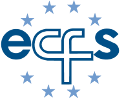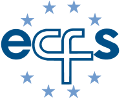ECFS Patient Registry Variables Conformity Survey
ECFS Patient Registry Variables Conformity Survey
Thank you for sending your data to the ECFSPR.
To identify any differences in the variables definitions/coding between your national database and the ECFSPR we kindly ask you to fill in this questionnaire. The information will help us in the data analyses, and differences will be highlighted in the annual data report as appropriate. Your help and collaboration in this survey is greatly appreciated.
NB You do not need to login to submit this information.

